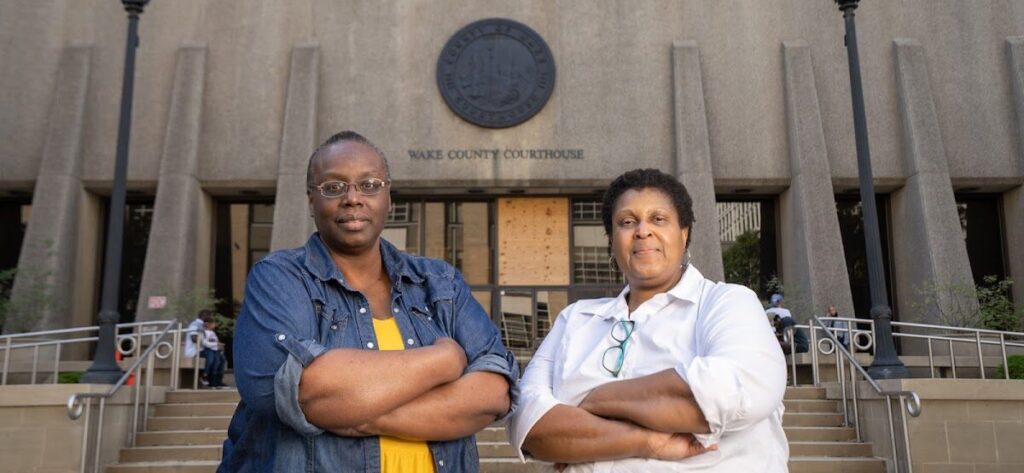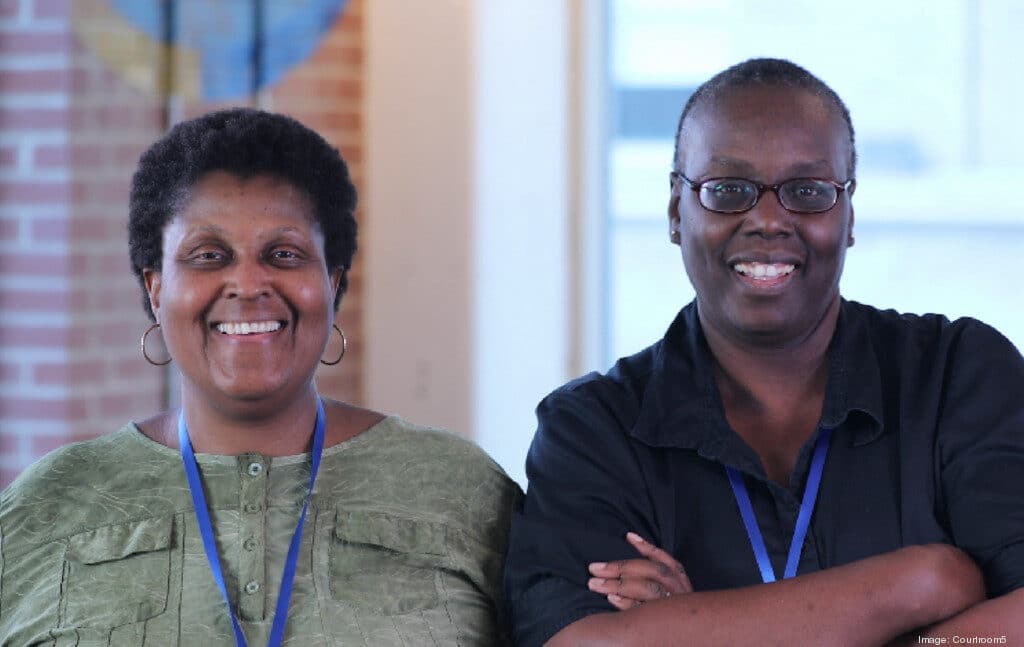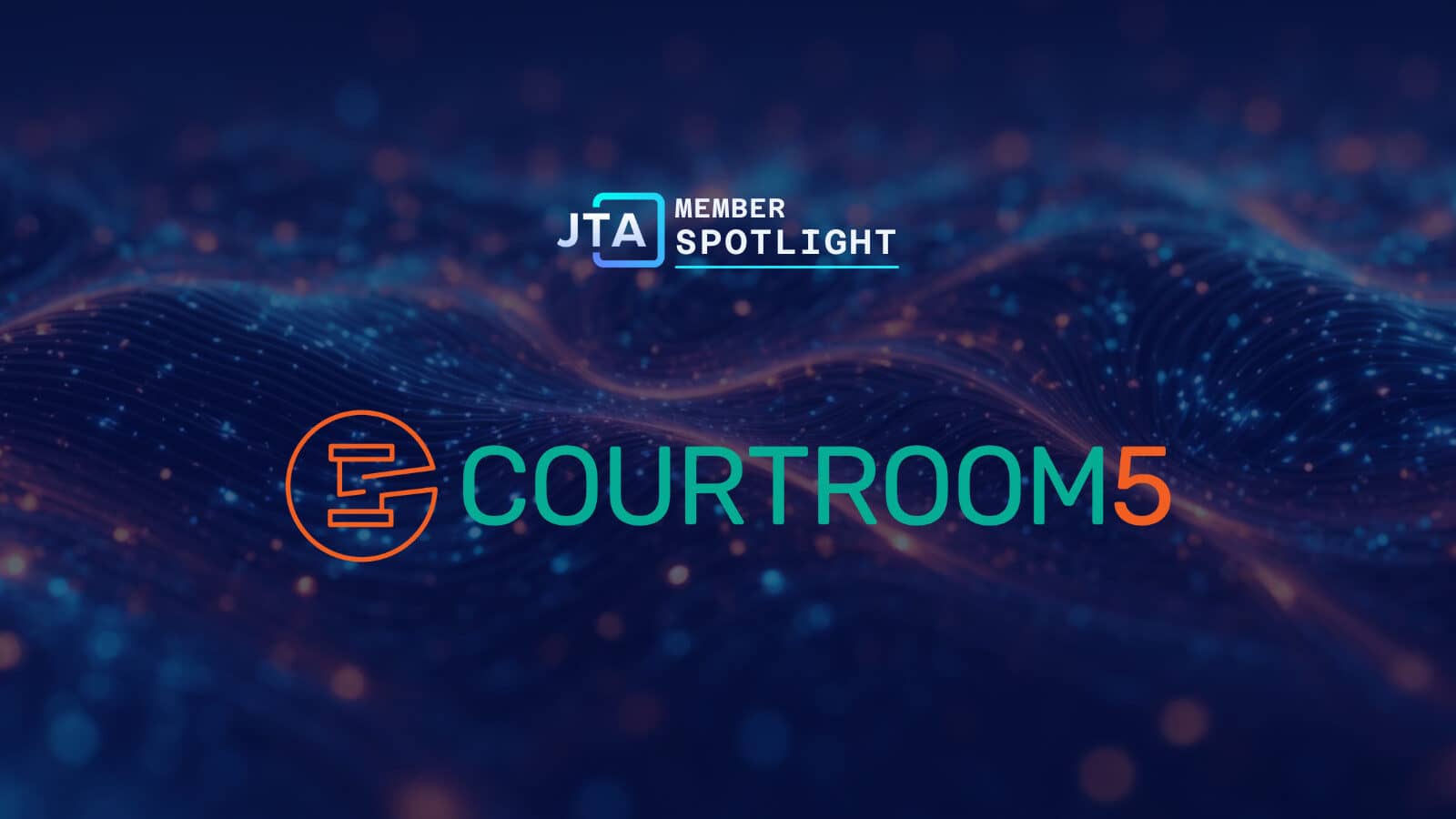Meet Courtroom5 – a leader in the justice tech ecosystem and one of the earliest members of the Justice Technology Association. Founded by Sonja Ebron, a PhD electrical engineer and entrepreneur with expertise in artificial intelligence and the utilities sector, and Debra Slone, a PhD information scientist and former library school professor specializing in qualitative data analysis. Courtroom5 is on a mission to democratize legal access by equipping self-represented litigants with the tools and confidence to advocate for themselves in court.
Their platform combines legal education, AI-driven guidance, and user-centered design to make justice more accessible for people often left out of the system. In this Member Spotlight, the Courtroom5 team shares the inspiration behind their work, their impact, and where they’re headed next.
1. What is your company’s mission?
At Courtroom5, our mission is to democratize access to justice by empowering individuals to represent themselves effectively in court. We provide tools and resources that enable users to interpret, apply, and argue the law confidently, ensuring everyone can advocate for their rights without the prohibitive costs of legal representation.
2. What inspired you to start your company?
The inspiration for Courtroom5 stemmed from personal experiences navigating the legal system without adequate representation. Facing the complexities and challenges firsthand highlighted the significant barriers many individuals encounter when seeking justice. This motivated us to create a platform that simplifies the legal process, making it more accessible and manageable for those who choose or need to represent themselves.
3. What problem are you solving?
We address the justice gap faced by self-represented litigants who often lack the resources, knowledge, and support to navigate the legal system effectively. By offering a comprehensive suite of tools, including AI-driven guidance and educational resources, Courtroom5 equips users with the necessary skills to manage their legal matters confidently and competently.

4. Who are your customers?
Our customers are individuals who are representing themselves in civil court cases, often due to financial constraints or a desire for autonomy in their legal matters. They come from diverse backgrounds but share a common need for accessible, reliable, and user-friendly legal support tools.
5. What is your business model?
Courtroom5 operates on a tiered subscription model, offering various levels of access to our legal toolkit and resources. This structure allows users to choose the plan that best fits their needs and budget, ensuring flexibility and affordability.
6. What is your company’s most significant achievement to date?
One of our most significant achievements is the successful empowerment of thousands of individuals to represent themselves in court confidently. Our platform has not only provided the necessary tools and knowledge but has also instilled a sense of agency and self-reliance in our users, contributing to a more equitable legal system.
7. What are your goals for the next year?
In the coming year, we aim to expand our reach by enhancing our platform’s features, incorporating more advanced AI capabilities, and forging partnerships with organizations that share our commitment to access to justice. We also plan to increase our educational outreach to better support our users throughout their legal journeys.
8. What is your biggest challenge?
Our primary challenge lies in raising awareness about the availability and efficacy of self-representation tools. Many individuals are unaware that such resources exist or doubt their ability to navigate the legal system without traditional representation. Overcoming this perception and building trust in our platform is an ongoing effort.
9. What does “justice tech” mean to you?
Justice tech represents the intersection of technology and legal access, aiming to bridge the gap between complex legal systems and the individuals they serve. It’s about leveraging innovative solutions to make justice more accessible, equitable, and efficient for all, particularly those traditionally underserved by the legal system.

10. Why did you join the Justice Technology Association?
We joined the Justice Technology Association to collaborate with like-minded organizations and individuals dedicated to transforming the legal landscape. Being part of this community allows us to share insights, learn from others, and collectively advocate for a more just and accessible legal system through technological innovation.
11. How can people learn more about your company?
To learn more about Courtroom5 and how we can assist you in your legal journey, please visit our website at www.courtroom5.com. Here, you’ll find detailed information about our services, resources, and how to get started.
Courtroom5 is reshaping what’s possible for self-represented litigants – and for the justice system as a whole. We’re proud to count Sonja, Debra, and the Courtroom5 team among the changemakers helping to build a more equitable future through innovative technology.
🔗 Learn more at www.courtroom5.com
🔗 Connect with Sonja Ebron and Debra Slone on LinkedIn


